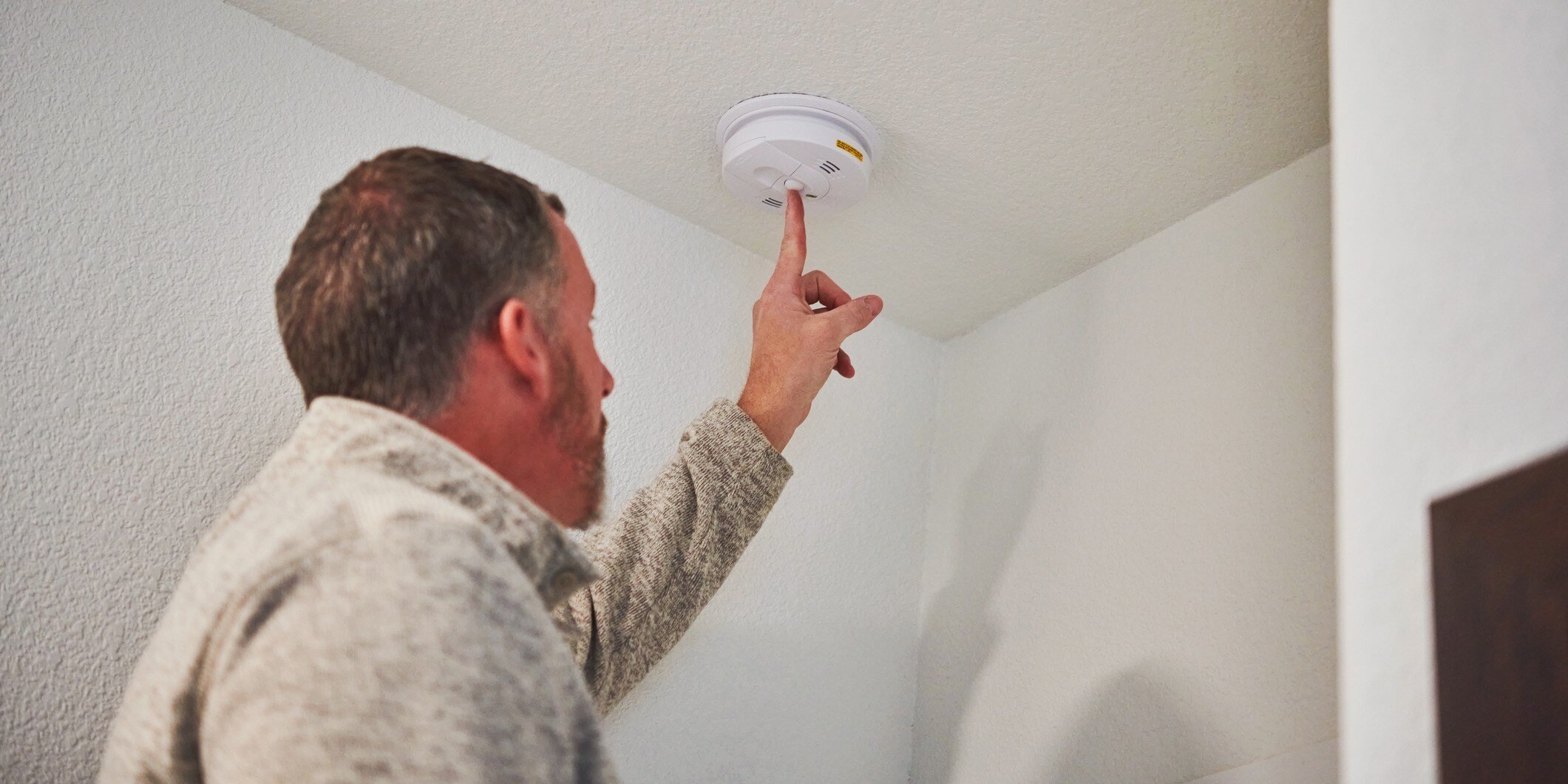In 2022, Congress passed the “Public and Federally Assisted Housing Fire Safety Act of 2022,” introducing new smoke alarm requirements for federally assisted housing. These guidelines, aligned with National Fire Protection Association (NFPA) Standard 72, aim to enhance fire protection and ensure resident safety.
All federally assisted housing properties must comply with these new guidelines by December 29, 2024, the law's effective date. Here’s an overview of the key changes and what they mean for property managers and residents.
The key changes
Qualifying Smoke Alarms Mandated: Under the new law, each public housing agency must ensure the installation of "qualifying smoke alarms" in accordance with NFPA Standard 72. These alarms must be installed on each level of a dwelling unit, in or near each sleeping area, including basements but excluding crawl spaces and unfinished attics. Common areas in housing projects must also have qualifying smoke alarms.
Specific Requirements for Battery-Powered Smoke Alarms: All battery-powered smoke alarms in federally assisted housing must have:
- Sealed Batteries: The batteries must be non-replaceable and tamper-proof to ensure long-term functionality.
- 10-Year Lifespan: The batteries must last for at least ten years without the need for replacement.
- Hardwiring: Smoke alarms must be hardwired in units built or substantially rehabilitated after the enactment of the law.
Regular Maintenance and Testing: Property managers are required to conduct regular maintenance and testing of smoke alarms. This includes:
- Monthly tests to ensure functionality.
- Replacing any malfunctioning units immediately.
Tenant Education: The guidelines emphasize the importance of educating tenants about the new smoke alarm systems, including how to test and maintain them. This can be achieved through educational materials and workshops.
Why these changes matter
Smoke alarms are a critical component of fire safety, especially in residential settings where people may be sleeping and unaware of a fire. In recognition of this, the National Fire Protection Association (NFPA) has highlighted the importance of functional smoke alarms through its Fire Prevention Week campaign. The theme for Fire Prevention Week, Oct. 6-12, is "Smoke alarms: make them work for you!"
“Smoke alarms can make a life-saving difference in a home fire, but they have to be working in order to deliver the needed protection,” said Lorraine Carli, vice president of NFPA's Outreach and Advocacy division. “This year’s Fire Prevention Week campaign reinforces the critical importance of smoke alarms and what’s needed to install, test, and maintain them properly.”
The impact of working smoke alarms
According to NFPA data, having working smoke alarms in the home reduces the risk of dying in a home fire by more than half (54 percent). However, roughly three out of five fire deaths occur in homes with either no smoke alarms or no working smoke alarms. More than one-third (38 percent) of home fire deaths result from fires in which no smoke alarms are present.
“People tend to remove smoke alarm batteries or dismantle them altogether when they don’t know how to fix the issue. These actions put them at serious risk in the event of a home fire,” said Carli. “This year’s Fire Prevention Week campaign gives people the tools and know-how to keep their smoke alarms in working order.”
Key messages for Fire Prevention Week

The key messages for this year’s Fire Prevention Week theme, “Smoke alarms: Make them work for you!” include:
- Installation: Install smoke alarms in every bedroom, outside each separate sleeping area (like a hallway), and on each level (including the basement) of the home.
- Accessibility: Make sure smoke alarms meet the needs of all family members, including those with sensory or physical disabilities.
- Testing: Test smoke alarms at least once a month by pushing the test button.
- Replacement: Replace all smoke alarms when they are 10 years old or don’t respond when tested.
Implementing the new guidelines
By understanding and implementing the changes outlined by the "Public and Federally Assisted Housing Fire Safety Act of 2022," property managers can remain compliant, create safer living environments, and reduce the risk of fire-related tragedies.
- Assessment: Conduct a thorough assessment of the current smoke alarm systems in your properties. Identify units that need to be replaced or upgraded to meet the new standards.
- Installation: Hire qualified professionals to install qualifying smoke alarms in all units. Ensure compliance with local building codes and regulations.
- Maintenance Plan: Develop a regular maintenance and testing schedule. Keep detailed records of all tests, maintenance activities, and replacements. Staff should test smoke alarms and carbon monoxide detectors whenever they enter a unit for a work order. Include a section on work order forms to document these checks. This documentation will demonstrate due diligence by property management if a fire occurs in the unit later.
- Tenant Communication: Educate your tenants about the new smoke alarms, their benefits, and how to maintain them. Provide clear instructions and offer support to residents with questions or concerns.
As the compliance deadline approaches, it’s crucial to stay proactive and make the necessary updates to meet these new standards.
For additional fire safety resources, visit our Fire Prevention Center or contact a member of our Risk Control team.
This article is for general information only. HAI Group makes no representation or warranty about the accuracy or applicability of this information for any particular use or circumstance. Your use of this information is at your own discretion and risk. HAI Group and any author or contributor identified herein assume no responsibility for your use of this information. You should consult with your attorney or subject matter advisor before adopting any risk management strategy or policy.






